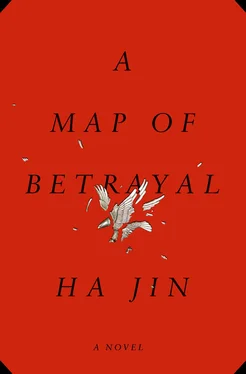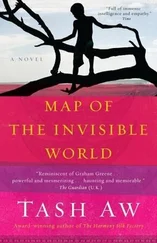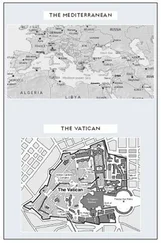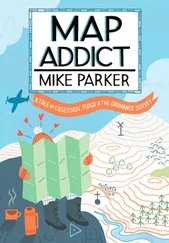Many Chinese had quite a bit of cash now, in part because they spent mainly on food and didn’t pay property taxes. Of course, if you stepped off campus, you would encounter all kinds of people who struggled to scrape together a living. Not far from the school’s main entrance there was a job agency beside a billboard that advertised shampoo. Under the gargantuan ad, which displayed a charming female face smiling over a bottle spouting pink bubbles, migrant workers, young men and women who had just arrived from the countryside, would gather in the mornings, waiting to be picked up as day laborers or temporary hands who made five or six dollars a day. Some of them smoked and wisecracked, and some stared at the ground. If you went to the train or bus stations, you’d find people lolling around, and some of them were homeless.
I was also teaching a graduate seminar and met a group of fourteen students once a week for three hours. We discussed issues in Asian American history and culture. I’d taught both courses numerous times and could do them without much preparation, so I had a lot of time for my personal project of reconstructing my father’s story. These days Beijing’s atmosphere was tense because the government was nervous about the popular democratic movements in the Mideast and Africa. But on campus people could talk freely in private. I told a few colleagues about the impasse in my personal investigation. One of them was in the Philosophy Department, Professor Peng, an older man I had known for many years; he said I shouldn’t give up the hope of locating Bingwen Chu. Professor Peng believed we could track Chu down if he was still alive. Chu used to work in the Ministry of National Security, which must have a file on him. Given his age, he must have retired long ago, so there should be no rule forbidding him to meet with me. Professor Peng said that a former student of his was working in that ministry and might be able to help me. He called the young man, a junior official, and told me to go see him.
I went to the headquarters of the Ministry of National Security, which was a brownish seven-story building encircled by a high black steel fence. The sentry at the front gate phoned my contact inside, and the young official strolled out to meet me. He had a soft-skinned face and an urbane demeanor. I told him I was looking for an uncle of mine, which was true in a sense since Bingwen Chu had been my father’s longtime friend of some kind. I showed him Chu’s snapshot, which I had Xeroxed from The Chinese Spook . A photo was necessary because I was clueless about his real name. The young official was delighted to know I was teaching at his alma mater for the second time and to hear me speak decent Mandarin, a language I had never stopped learning since I was a child, so he was more than willing to help. He jotted down the information on Bingwen Chu and promised to get someone to look through the archives. He’d give me a ring if they found anything about the man.
He called at the end of February to tell me that Chu was living in a suburb of Beijing, in a residential compound for retired cadres. I phoned Chu that very evening, saying I was Gary Shang’s daughter from the United States and would love to see him. After a long pause, Chu said in a voice that suggested a clear head, “All right, I have plenty of time nowadays. Come any day you want to.”
We settled on the following Wednesday afternoon, since I’d teach only in the morning that day. Before visiting him, I reviewed some questions essential for reconstructing my father’s story. I took a taxi to Chu’s place, intimidated by the packed buses and subway. Two decades ago, when I was in my early thirties and teaching in Beijing, I’d ridden a bike or taken public transportation whenever I went out, but it was hard for me to do the same now, because the buses and trains were far too crowded and because I was no longer young.
Bingwen Chu was a small withered man with a bush of white hair and a face scattered with liver spots, but his eyes were still bright and alert. Given his age, eighty-seven, he was in good shape. He appeared at ease and glad to see me.
We were seated in his living room, its walls decorated with framed certificates of merit, all bearing the scarlet chop marks of the offices that had issued the commendations. After his youngest daughter, a forty-something, had served dragon well tea, he said to her, “Can you excuse Lilian and me for a moment?”
The stocky woman nodded and left without a word. Although he addressed me by my first name and I called him Uncle Bingwen, I felt a palpable barrier between us. He’d been my father’s sole handler for three decades, but not an unfailing friend. I reminded myself to be composed and that I was here mainly to ask him some questions. Chu allowed me to take notes but not to record our conversation. That was fine with me.
“Sure,” he said, “Gary and I were comrades-in-arms, also buddies. I was his recommender when he was inducted into the Party.”
“When was that?” I asked.
“The summer of … nineteen fifty-two — no, fifty-three. He was voted in unanimously.”
“Uncle Bingwen, in your opinion, was my dad a good Communist, a sincere believer?”
“Well, it’s hard to say. But I know this: he loved China and did a great service to our country.”
“So he was a patriot?”
“Beyond any doubt.”
“Did it ever occur to you that he might have loved the United States as well?”
“Yes. We read about that … in some newspaper articles on his trial. I could sympathize with him. No fish can remain … unaffected by the water it swims in. In a way, we have all been shaped … by forces bigger than ourselves.”
“That’s true. How often did you meet him?”
“On average, we met every two years. But sometimes we lost touch … due to China’s political chaos. Sometimes we met once a year.”
“Did he ever come back to China on the sly?”
“No, never. Our higher-ups wouldn’t let him … for fear of blowing his identity. Gary was always eager to return for a visit. He often said he was lonely and homesick. The people in the intelligence service all know … what those feelings are like. For his suffering, bravery, and fortitude, Gary had our utmost respect.”
“Then why didn’t China make any effort to rescue him when he was incarcerated in the States?”
“He was a special agent — the type we call ‘nails.’ ”
“Can you elaborate?”
Chu lifted his teacup and took a swallow, his mouth sunken. He seemed to have only a few teeth left. He said, “A nail must remain in its position … and rot with the wood it’s stuck in, so a spy of the nail type is more or less a goner. Gary must’ve known that. There was no help for it; it’s in the nature of our profession.”
I felt he was hedging by categorizing my father’s situation. Perhaps he couldn’t go into detail about his case, which involved some thorny issues, such as the diplomatic relationship between the two countries and Gary’s future usefulness or uselessness to China. I veered the conversation a bit, asking, “To the Chinese government, how big an agent was my dad?”
“Gary was in a class all his own, our highest-ranking spy.”
That was a shock. “But — he was a general merely on paper, wasn’t he?”
“Not at all. The intelligence he sent back … helped China make right decisions that were vital to our national security. Some of the information from Gary … went to Chairman Mao directly.”
“So for that he earned his due?”
“Yes. His rank was higher than mine, although he had started later and lower than me.” Chu paused as if to gather his strength. He resumed, “In intelligence circles, very few can reach the rank of general … purely by their abilities and contributions. Gary was an exception. He got promoted to general, well deserved. I couldn’t catch up with him.”
Читать дальше











